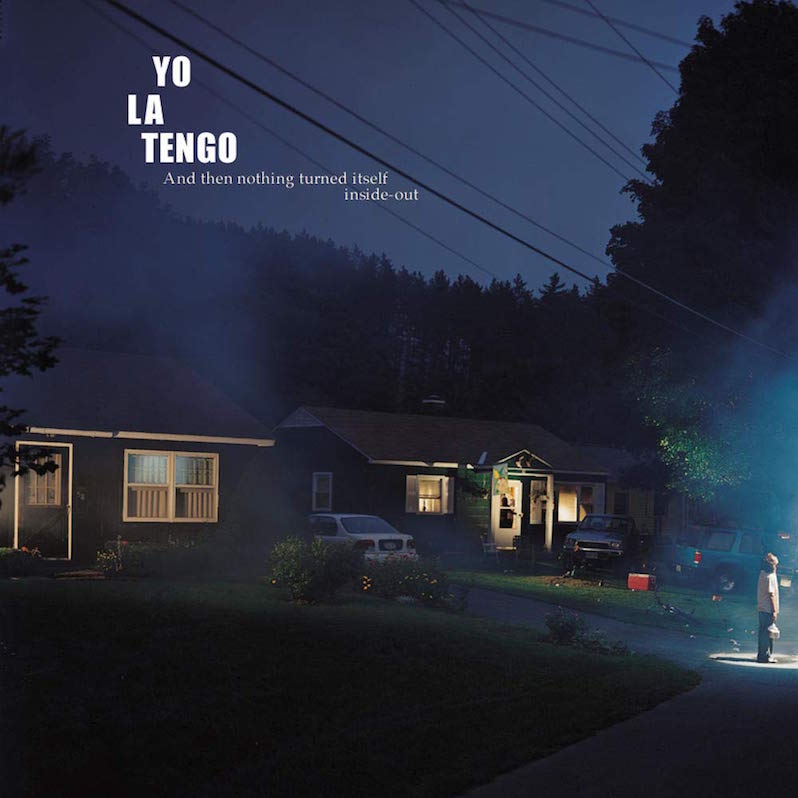Beach House : Teen Dream

Beach House‘s stock in trade is intimacy. Since their self-titled 2006 debut, the Baltimore duo has dealt primarily in stark, sometimes barely-there arrangements, often creating the sense that the music exists for the listener’s ears, and that listener’s ears only. Such intimacy makes their music incredibly romantic, in addition to being incredibly gorgeous. But it can also be a bit eerie. In songs like “You Came to Me,” Victoria Legrand and Alex Scally create a chilly, candle-lit atmosphere that’s not so much haunting as haunted. Of course, it’s such an entrancing creation that one may easily feel compelled to cut a rug with any phantoms that may arise from their shiver-inducing dream pop.
Yet when a band creates music as nuanced and stripped as Beach House does, any changes that occur over time become that much more noticeable. The primary difference between their debut and 2008’s Devotion may have been in the songwriting, but with third album Teen Dream, their first for Sub Pop, they aim for something bigger, brighter, more sparkling. When you get down to the basics, Teen Dream is very much a Beach House record. Alex Scally’s weeping guitar riffs and Victoria Legrand’s smoky vocals are still the primary focus, creating an atmosphere still rife with romantic longing and melancholy evocation. But with the leap to a bigger-budget indie, they’ve made a big budget pop album, full of lush arrangements, live drums, more pronounced hooks and their most outstanding melodies to date.
Where once the group pared their sound to its most spectral elements, here Legrand, Scally and their percussionists, Graham Hill and Dan Franz, fill every square inch of empty space with glorious and shimmering sound. The first glimpse of this expansive, widescreen approach came with their late 2008 single “Used to Be,” an elegant uptempo pop wonder that turns Legrand’s dejected narration of lovers drifting apart into a glorious remembrance of better times. Showing up as the fifth track on Teen Dream, it’s a perfect fit among the album’s bigger and bolder arrangements, but an even more dramatic surprise arrived in the form of second single “Norway.” Fluid, emitting a brilliant glow, “Norway” is a revelation, aflutter with cascading guitar trickle that makes the group sound both enormous and weightless. But what’s most remarkable is Legrand’s reading of the song’s title, turning the country’s name into an impassioned cry.
The group’s newfound adoration of texture and sonic depth, appropriately enough, make Teen Dream seem all that much more dreamlike. It’s not as if the band didn’t sound dreamy before, but in the past it was more of a soporific, sleepwalking kind of haze. Here it’s essentially a full-blown fantasy. Opener “Zebra” starts off humbly enough, blooming one petal at a time before completely reaching for the sun during its gorgeous, ascendant chorus. And what’s seemingly already perfect only gets better with the addition of Franz’s drums. “Silver Soul” is as fitting a title as it gets, for the album’s second track seems to evoke just that feeling, juxtaposing a deep, emotional and gospel-influenced sound with a metallic glaze, making for a truly beautiful combination. “Walk In the Park” has a similarly soulful strut, but escalates into yet another transcendent chorus, while “Lover of Mine” emits a neon, new wave radiance. And “10 Mile Stereo” builds magically into a dense soup of effects, made more intense by a surprisingly accelerated BPM.
For an album that resembles such a beautiful dream state, though, there’s an awful lot of heartbreak and sadness. The long distance love letters like “D.A.R.L.I.N.G.” are in short supply, and in their place, lamentations of separation and estrangement. When Legrand sings “It is happening again” in “Silver Soul,” it sounds more like a regret than a celebration. In “Used to Be,” she pleads, “Don’t forget the nights when it still felt right, are you not the same that you used to be?” But the tenor of the song seems to suggest that whoever she’s communicating with isn’t the same, no matter how good those times used to be. Still, for an album that’s weighed heavily by sadness, it’s one that feels incredibly good to listen to. Seasoned with tears but embracing its listeners with warmth and brilliance, this album is the sort of dream from which one might never want to wake.
Label: Sub Pop
Year: 2010
Similar Albums:
Note: When you buy something through our affiliate links, Treble receives a commission. All albums we cover are chosen by our editors and contributors.
Jeff Terich is the founder and editor of Treble. He's been writing about music for 20 years and has been published at American Songwriter, Bandcamp Daily, Reverb, Spin, Stereogum, uDiscoverMusic, VinylMePlease and some others that he's forgetting right now. He's still not tired of it.




